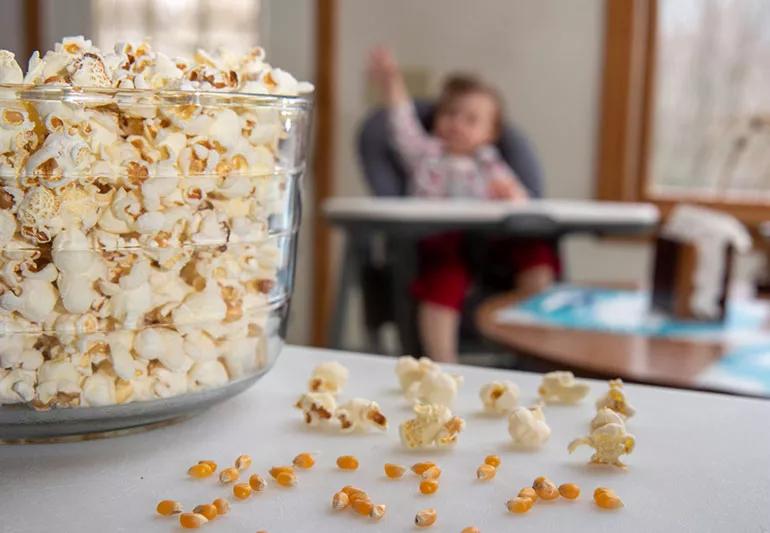A digestive disease expert explains

A: Popcorn is generally considered a healthy snack food, given all of the candy and high-fructose containing snacks on the market.
Advertisement
Cleveland Clinic is a non-profit academic medical center. Advertising on our site helps support our mission. We do not endorse non-Cleveland Clinic products or services. Policy
But be cautious when giving popcorn to kids — especially to very young children — due to the risk of choking. The American Academy of Pediatrics includes popcorn on its choking-risk list for children under age 4.
Older children and adolescents shouldn’t ingest large handfuls of the unpopped “old maid” kernels either. Besides being a choking hazard, crunching them can damage teeth. In severe cases, swallowing them can cause a mass collection in the intestinal tract, known as a “bezoar.” Small bezoars may pass on their own or with the help of medication, while sizeable ones may require surgery.
If your child develops abdominal pain after eating a large amount of unpopped kernels, call your pediatrician.
The bottom line: Don’t entice a young child with popcorn. And if you’re munching away, only eat those kernels that are fully popped.
— Pediatric gastroenterologist Deborah Goldman, MD
Advertisement
Learn more about our editorial process.
Advertisement

Adding extra formula, cereal or medications to your baby’s bottle is a dangerous and misguided practice

Teaching your baby to sign may help ease frustrations before they can talk, but it’s not a must-do

Babies can get congested easily, but you can calm their cough by keeping them hydrated, using nasal drops and running a humidifier

Try to burp your baby mid-feed and after they finish eating — but don’t sweat it if they don’t burp

Most babies will recognize their name by about 9 months old

Clean your baby’s mouth with a washcloth or small toothbrush if they have a tooth or you suspect thrush

‘Social smiles’ typically start around 8 weeks old, while laughter comes later — around 4 to 6 months

Most infants can roll from tummy to back by 6 months old — but remember, every child develops at their own pace

Wearing a scarf, adjusting your outdoor activities and following your asthma treatment plan can help limit breathing problems

Your diet in the weeks, days and hours ahead of your race can power you to the finish line

When someone guilt trips you, they’re using emotionally manipulative behavior to try to get you to act a certain way